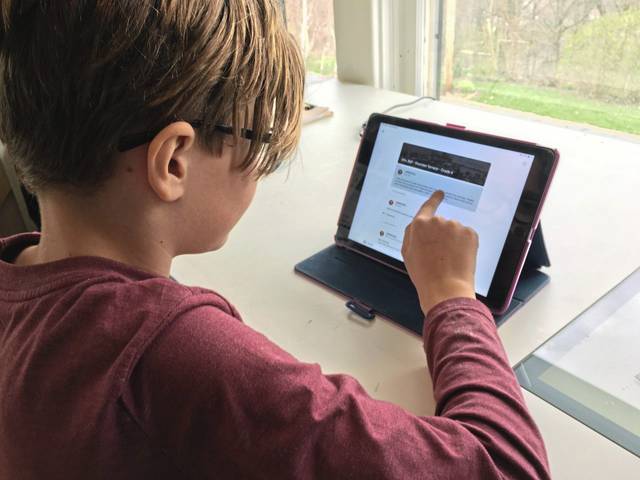For many Pennsylvanians, the covid-19 pandemic became real on March 13 when Gov. Tom Wolf ordered Pennsylvania’s schools to close. The governor’s recent announcement that schools will not reopen this school year has brought sadness and a deep sense of loss to students, families and educators, who will be wholly reliant on remote education until school is out for summer.
Fortunately, the Pennsylvania General Assembly passed legislation to provide stability and clarity for Pennsylvania’s 500 school districts. Schools remain funded at pre-pandemic levels; school employees remain on duty for teaching, counseling and food distribution activities; and the secretary of Education has flexibility to respond quickly in the ever-changing environment.
School leaders and educators have been working tirelessly to transform to a new system of remote learning. Consider the challenge — keeping fidgety first-graders engaged, helping fourth- and fifth-graders, old enough to feel their parents’ anxiety, remain interested in science and social studies, and keeping high-schoolers on track for graduation.
We should acknowledge the urgency and creativity of teachers and administrators responding to this challenge.
We must also acknowledge the tremendous inequities in school districts’ ability to provide remote learning to students in Pennsylvania’s urban and rural school districts.
To address this problem we call on the governor to immediately convene a remote learning task force of school officials and experts to ensure all school districts have the capability to provide remote learning to all students, including students with disabilities and English learners.
Students face two significant barriers to remote learning.
In less wealthy communities, school districts struggle to provide even the most basic resources during the best of times and can’t afford to give each student a personal computer. The laptop or iPad that is standard issue in some districts is a distant dream in others.
Many families can’t afford high speed internet service in their homes to connect students to materials and instruction. In Pennsylvania’s broadband deserts, high speed internet is simply not available.
There are bright spots. The Pennsylvania Department of Education has made online curriculum available to students at no cost and has partnered with public television stations to connect families with thousands of hours of educational programming.
School districts and intermediate units are finding creative solutions to help students connect, experimenting with mobile hotspots and using school building parking lots as WiFi hubs.
These actions are extraordinary but they are not universal.
The General Assembly should swiftly enact Rep. Curtis Sonney’s cyber education bill, requiring districts to offer three cyber options to students, including a district program and two provided by qualified vendors, including cyber schools. This approach maintains choice, creates competition to drive down costs and holds vendors accountable for the quality of instruction. Districts that are providing full-time cyber education for $5,000 per child should not be forced to pay three times that amount for cyber charter schools.
Online learning is no substitute for everything that our local public schools provide students. And parents throughout the commonwealth appreciate more than ever the value of trained professionals who teach our students every day.
Still, we must recognize the unpredictable nature of this pandemic. The remote learning task force can start immediately to identify gaps in technology and instruction. Developing a comprehensive assessment of connectivity gaps will help school districts today and put Pennsylvania in a strong position to leverage potential federal funds in the future.
The covid-19 has laid bare the tremendous inequities in our education system. Vulnerable students who lack resources necessary to learn will fall further behind. Studies are clear — children who don’t read on grade level by third grade, or who are disengaged in ninth grade, are at great risk of academic failure.
We urge the governor and lawmakers to take up this challenge now to protect our children from short-term illness and long-term injury from this pandemic.
Susan Spicka is executive director of Education Voters of PA, a statewide policy and advocacy organization that supports strong public schools in every community.








